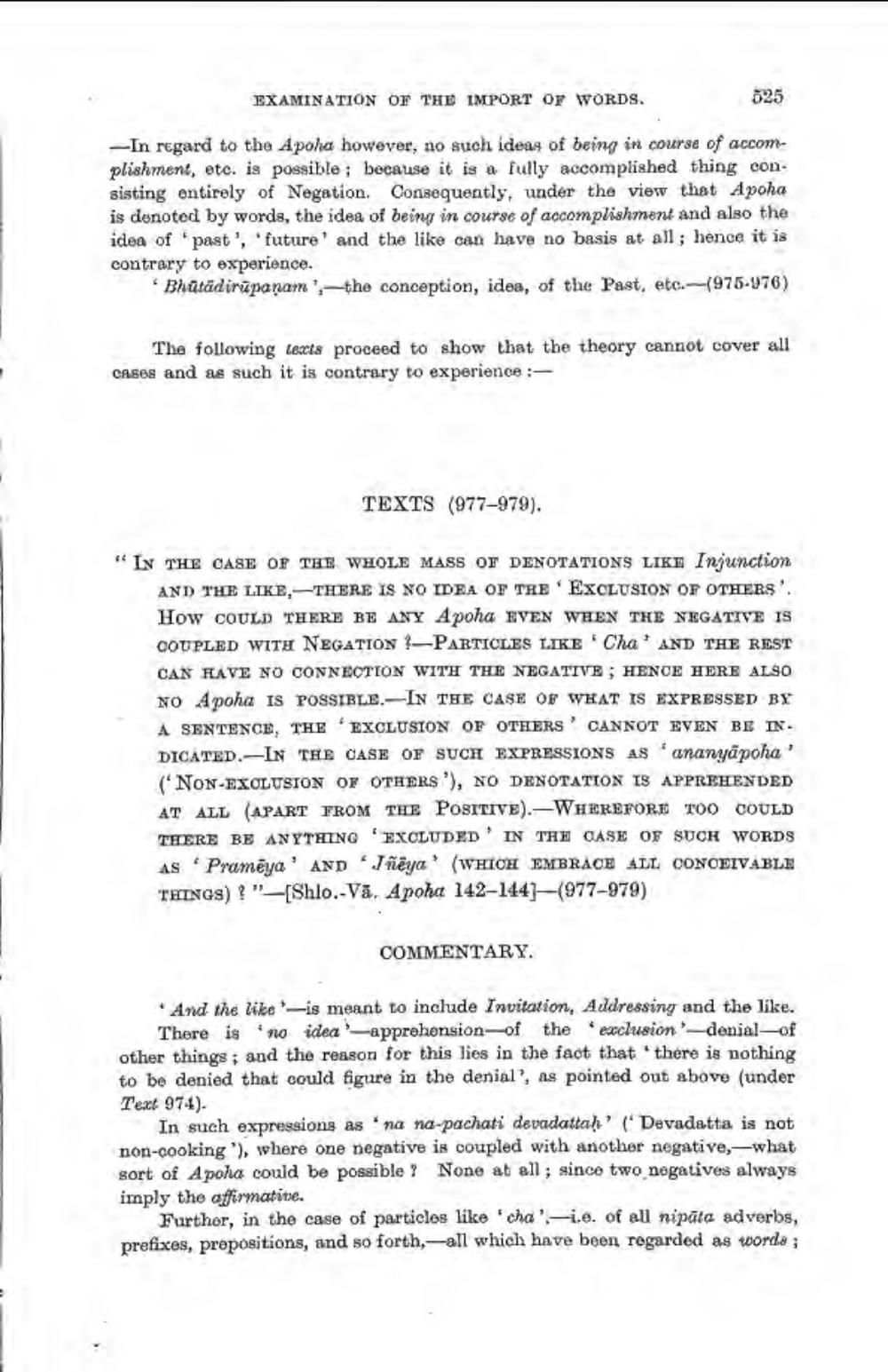________________
EXAMINATION OF THE IMPORT OF WORDS.
525
- In regard to the Apoha however, no such ideas of being in course of accomplishment, etc. is possible ; because it is a fully accomplished thing con. sisting entirely of Negation. Consequently, under the view that Apoha is denoted by words, the idea of being in course of accomplishment and also the idea of 'past', 'future and the like can have no basis at all; hence it is contrary to experience.
Bhutädirūpanam', -the conception, idea, of the Past, etc.-1975-976)
The following lects proceed to show that the theory cannot cover all cases and as such it is contrary to experience :
TEXTS (977-979).
" IN THE CASE OF THE WHOLE MASS OF DENOTATIONS LIKE Injunction
AND THE LIKE, THERE IS NO IDEA OF TRE' EXCLUSION OF OTHERS'. How COULD THERE BE ANY A poha EVEN WHEN THE NEGATIVE IS COUPLED WITH NEGATION -PARTICLES LIKE Cha" AND THE REST CAN HAVE NO CONNECTION WITH THE NEGATIVE; HENCE HERE ALSO NO Apoha IS POSSIBLE. IN THE CASE OF WHAT IS EXPRESSED BX A SENTENCE, THE 'EXCLUSION OF OTHERS CANNOT EVEN BE IN. DICATED.-IN THE CASE OF SUCH EXPRESSIONS AS 'ananyāpoha (NON-EXCLUSION OF OTHERS'), NO DENOTATION IS APPREHENDED AT ALL APART FROM THE POSITIVE).-WHEREFORE TOO COULD THERE BE ANYTHING EXCLUDED IN THE CASE OF SUCH WORDS As Pramēya' AND Tñeya' (WHICH EMBRACE ALL CONCEIVABLE THINGS) ?"_[Shlo. Vă. Apoha 142-1441-(977-979)
COMMENTARY.
* And the like is meant to include Invitation, Addressing and the like.
There is no idea-apprehension of the exclusion' - denial-of other things, and the reason for this lies in the fact that there is nothing to be denied that could figure in the denial', as pointed out above (under Text 974).
In such expressions as 'na na-pachati devadattah' ('Devadatta is not non-cooking'), where one negative is coupled with another negative, what sort of Apoha could be possible ? None at all; since two negatives always imply the affirmative.
Furthor, in the case of particles like 'cha'-i.e. of all nipāta adverbs, prefixes, prepositions, and so forth, all which have been regarded as words;




